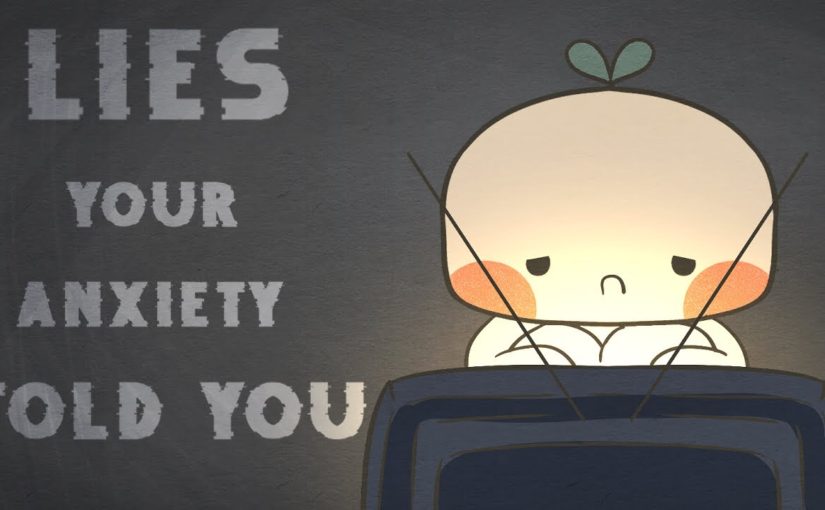– Hey, Psych2Go viewers,
Welcome back to our channel. Do you get bouts of
anxiety from time to time? This can be normal before a
first date or a job interview since these emotions often
subside after a while. But if your anxiety is persistent,
This can be concerning. Continuing to feel very
anxious, even after a date, job interview or speech can
indicate something else, an anxiety disorder. Does this sound familiar? If anxiety is something
that you deal with, you’re not alone. Approximately 19% of
Americans have experienced an anxiety disorder, and about 31% of Americans will experience an anxiety disorder in their lifetime. Many of us usually think of sweaty palms and heart palpitations
as symptoms of anxiety, but anxiety can manifest
itself in other ways too. Most of the other signs go unnoticed. So, what are they? Here are six signs of anxiety
that often go unnoticed. Number one, jaw pain. Have you ever noticed
jaw pain from anxiety? Anxiety is usually not the first thing you may think of when you
experience jaw pain or toothaches. You may usually blame a cavity
or another dental problem, but jaw pain and toothaches
can also be caused by anxiety. More specifically bruxism. This is when an individual
unconsciously and excessively grinds or clenches their teeth. Bruxism is a by-product of stress. When we’re stressed our
whole body clenches up in preparation to fight or flight, hence teeth grinding and jaw pain. Studies support this theory, stating that there is a high
index of anxiety among bruxers, as opposed to non-bruxers. But anxiety is not the only
mental health condition that causes this. People with depression and neuroticism can also experience toothaches
as a result of bruxism. The condition is usually
self-diagnosed and can be treated. Most teeth-grinding
activity happens overnight. So, you may not notice that early on. Morning tooth pain is
usually the first clue. If you wake up with jaw pain frequently, consider finding what
is causing you stress. It may take some time but always seek help from a licensed professional if necessary. Number two is scattered thinking. Another sign of anxiety,
scattered thinking. Anxiety floods, your thoughts
with negativity and doubts. Often these thoughts are disruptive, and can easily make you
forget your surroundings. You may come off as inattentive. While intrusive thoughts
can steal your attention, there’s also another reason why
you may feel scatterbrained. Anxiety can have neurological effects as well as physical ones. It affects your limbic system, specifically the prefrontal cortex. This part of the brain is known
for executive functioning, but it’s also responsible
for social behavior. When you’re anxious, your prefrontal cortex and other structures of your
limbic systems are impaired. As a result, you may find
that you lose the thread of a conversation or have
trouble concentrating on a task. If this is something to deal with often, try to ground yourself in the present. There are many wonderful
grounding techniques. The most popular one is box breathing. Wanna try? Okay. Breathe in for four seconds. One, two, three, four. Now hold for four. One, two, three, four. Now exhale for four. One, two, three, four. And then hold again for four. One, two, three, four. Ah! Better? I sped it up a little bit, but try to take your
time with it next time. Number three, cold feet. I’m sure you’ve heard the
term getting cold feet. There’s a reason this popular
idiom describes being nervous. When you’re anxious, perhaps similar to right
Before you get married, your body jumps into a fight or flight. This reaction triggers a
cascade of neurological and hormonal shifts. One of them is that it tells your brain to release adrenaline.

Adrenaline helps you
redirect your blood flow so that most of it is sent
to your vital organs, like your heart and lungs. Consequently, your extremities
start to feel cold. Number four is irritability. Do you easily become irritated? Irritability is a common sign of anxiety. However, it’s a symptom we
often overlook or ignore. It’s a sign that you’re
overwhelmed with stress. Anxiety is associated
with hypersensitivity, meaning that you’ll be much more sensitive to your surroundings, which may cause you to feel
more irritated than usual. Number five is impulsive buying. Another sign of anxiety is impulsivity. In this case, impulse buying. However, impulsivity can manifest itself in many ways, such
as engaging in risky behavior. Impulsivity because of anxiety can be due to numerous factors. The main one is that your
orbital frontal cortex, another branch of your
limbic system, is affected. Studies found that anxiety
increases the blood flow to that region, which
consequently, increases activity. An increase in activity can lead to either impulse control issues,
hoarding, or impulse spending. Additionally, anxiety affects
your prefrontal cortex and makes it harder for you to make wise and thoughtful decisions. Impulse buying, as well as hoarding, are also forms of self-soothing. They provide a false sense
of comfort and security. If you do find yourself caving in and taking financial risks, please consider reaching
out to a therapist for help. And number six, crying easily. When was the last time you cried? One last sign that goes
unnoticed is crying easily. Inexplicably bouts of crying can mean you’re overwhelmed by the
situation you find yourself in. Not only can it be because
of a sensitivity to stress, but it can also be due to
your fight or flight response. The correct terminology is
fight, flight, or freeze. Feeling stuck or freezing
amidst a perceived threat can progress these overwhelming
feelings of stress. When you find yourself crying, attempt to relax by taking a deep breath. Then allow yourself to cry. Crying can release all of those feelings you may be holding onto. It may be great to find
additional ways to self-soothe when you’re feeling anxious as well. So have you experienced
any of these signs? I have. What are some self-soothing
behaviors that help you? I enjoy walking. Feel free to let us know
in the comments below. Anxiety is quite common
and can be manageable. If you ever need help or guidance reaching out to a therapist
or mental health professional can be a good idea. Feel free to like and share
this video if it helped you, or if you think it
could help someone else. Don’t forget to hit the subscribe button and notification bell icon
for more videos like this. And thanks for reading, take care.
As found on YouTubeNatural Synergy $47.⁰⁰ New Non-Invasive Alternative. To Electro-Acupuncture, Producing Astounding Results… Self-Application Is Easy, Rapid Response. You’re about to discover how both chronic and acute pain, skin conditions, migraines, and hundreds of ailments all stem from the same root cause ꆛ Yin Yang
Ailments🗯 such as➯➱ ➫ ➪➬ Chronic pain immunity⇝Chronic acid reflux⇝High blood pressure⇝Addictions⇝Fibromyalgia⇝Allergies⇝Osteoarthritis⇝Headaches⇝Low back⇝pain Asthma⇝Headaches⇝Depression and anxiety⇝Urinary problems… to name just a few…

 Number five, make something. Art therapy can be a way
for you to illustrate what you’re feeling without needing to find the words for it. And number six, therapy. With the right guidance and support, you can slowly overcome
your social anxiety…As found on YouTubeNatural Synergy $47.⁰⁰ New Non-Invasive Alternative. To Electro-Acupuncture, Producing Astounding Results… Self-Application Is Easy, Rapid Response. You’re about to discover how both chronic and acute pain, skin conditions, migraines, and hundreds of ailments all stem from the same root cause ꆛ Yin Yang Ailments🗯 such as➯➱ ➫ ➪➬ Chronic pain⇝Low immunity⇝Chronic acid reflux⇝High blood pressure⇝Addictions⇝Fibromyalgia⇝Allergies⇝Osteoarthritis⇝Headaches⇝Low back⇝pain Asthma⇝Headaches⇝Depression and anxiety⇝Urinary problems… to name just a few…
Number five, make something. Art therapy can be a way
for you to illustrate what you’re feeling without needing to find the words for it. And number six, therapy. With the right guidance and support, you can slowly overcome
your social anxiety…As found on YouTubeNatural Synergy $47.⁰⁰ New Non-Invasive Alternative. To Electro-Acupuncture, Producing Astounding Results… Self-Application Is Easy, Rapid Response. You’re about to discover how both chronic and acute pain, skin conditions, migraines, and hundreds of ailments all stem from the same root cause ꆛ Yin Yang Ailments🗯 such as➯➱ ➫ ➪➬ Chronic pain⇝Low immunity⇝Chronic acid reflux⇝High blood pressure⇝Addictions⇝Fibromyalgia⇝Allergies⇝Osteoarthritis⇝Headaches⇝Low back⇝pain Asthma⇝Headaches⇝Depression and anxiety⇝Urinary problems… to name just a few…

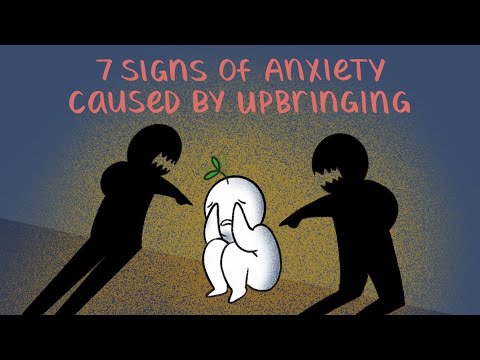

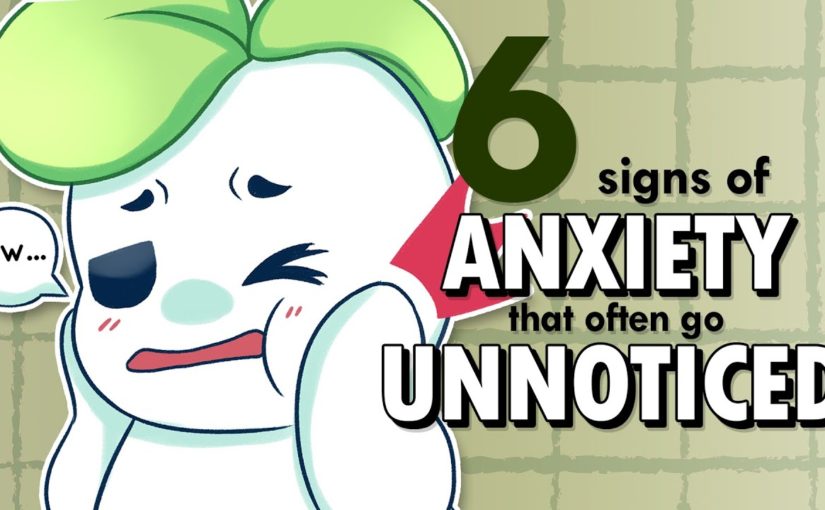
 Adrenaline helps you
redirect your blood flow so that most of it is sent
to your vital organs, like your heart and lungs. Consequently, your extremities
start to feel cold. Number four is irritability. Do you easily become irritated? Irritability is a common sign of anxiety. However, it’s a symptom we
often overlook or ignore. It’s a sign that you’re
overwhelmed with stress. Anxiety is associated
with hypersensitivity, meaning that you’ll be much more sensitive to your surroundings, which may cause you to feel
more irritated than usual. Number five is impulsive buying. Another sign of anxiety is impulsivity. In this case, impulse buying. However, impulsivity can manifest itself in many ways, such
as engaging in risky behavior. Impulsivity because of anxiety can be due to numerous factors. The main one is that your
orbital frontal cortex, another branch of your
limbic system, is affected. Studies found that anxiety
increases the blood flow to that region, which
consequently, increases activity. An increase in activity can lead to either impulse control issues,
hoarding, or impulse spending. Additionally, anxiety affects
your prefrontal cortex and makes it harder for you to make wise and thoughtful decisions. Impulse buying, as well as hoarding, are also forms of self-soothing. They provide a false sense
of comfort and security. If you do find yourself caving in and taking financial risks, please consider reaching
out to a therapist for help. And number six, crying easily. When was the last time you cried? One last sign that goes
unnoticed is crying easily. Inexplicably bouts of crying can mean you’re overwhelmed by the
situation you find yourself in. Not only can it be because
of a sensitivity to stress, but it can also be due to
your fight or flight response. The correct terminology is
fight, flight, or freeze. Feeling stuck or freezing
amidst a perceived threat can progress these overwhelming
feelings of stress. When you find yourself crying, attempt to relax by taking a deep breath. Then allow yourself to cry. Crying can release all of those feelings you may be holding onto. It may be great to find
additional ways to self-soothe when you’re feeling anxious as well. So have you experienced
any of these signs? I have. What are some self-soothing
behaviors that help you? I enjoy walking. Feel free to let us know
in the comments below. Anxiety is quite common
and can be manageable. If you ever need help or guidance reaching out to a therapist
or mental health professional can be a good idea. Feel free to like and share
this video if it helped you, or if you think it
could help someone else. Don’t forget to hit the subscribe button and notification bell icon
for more videos like this. And thanks for reading, take care.
Adrenaline helps you
redirect your blood flow so that most of it is sent
to your vital organs, like your heart and lungs. Consequently, your extremities
start to feel cold. Number four is irritability. Do you easily become irritated? Irritability is a common sign of anxiety. However, it’s a symptom we
often overlook or ignore. It’s a sign that you’re
overwhelmed with stress. Anxiety is associated
with hypersensitivity, meaning that you’ll be much more sensitive to your surroundings, which may cause you to feel
more irritated than usual. Number five is impulsive buying. Another sign of anxiety is impulsivity. In this case, impulse buying. However, impulsivity can manifest itself in many ways, such
as engaging in risky behavior. Impulsivity because of anxiety can be due to numerous factors. The main one is that your
orbital frontal cortex, another branch of your
limbic system, is affected. Studies found that anxiety
increases the blood flow to that region, which
consequently, increases activity. An increase in activity can lead to either impulse control issues,
hoarding, or impulse spending. Additionally, anxiety affects
your prefrontal cortex and makes it harder for you to make wise and thoughtful decisions. Impulse buying, as well as hoarding, are also forms of self-soothing. They provide a false sense
of comfort and security. If you do find yourself caving in and taking financial risks, please consider reaching
out to a therapist for help. And number six, crying easily. When was the last time you cried? One last sign that goes
unnoticed is crying easily. Inexplicably bouts of crying can mean you’re overwhelmed by the
situation you find yourself in. Not only can it be because
of a sensitivity to stress, but it can also be due to
your fight or flight response. The correct terminology is
fight, flight, or freeze. Feeling stuck or freezing
amidst a perceived threat can progress these overwhelming
feelings of stress. When you find yourself crying, attempt to relax by taking a deep breath. Then allow yourself to cry. Crying can release all of those feelings you may be holding onto. It may be great to find
additional ways to self-soothe when you’re feeling anxious as well. So have you experienced
any of these signs? I have. What are some self-soothing
behaviors that help you? I enjoy walking. Feel free to let us know
in the comments below. Anxiety is quite common
and can be manageable. If you ever need help or guidance reaching out to a therapist
or mental health professional can be a good idea. Feel free to like and share
this video if it helped you, or if you think it
could help someone else. Don’t forget to hit the subscribe button and notification bell icon
for more videos like this. And thanks for reading, take care.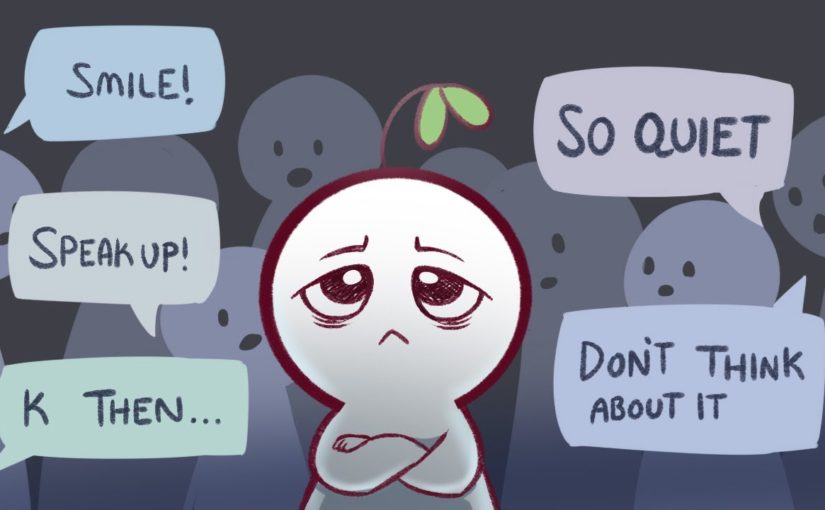
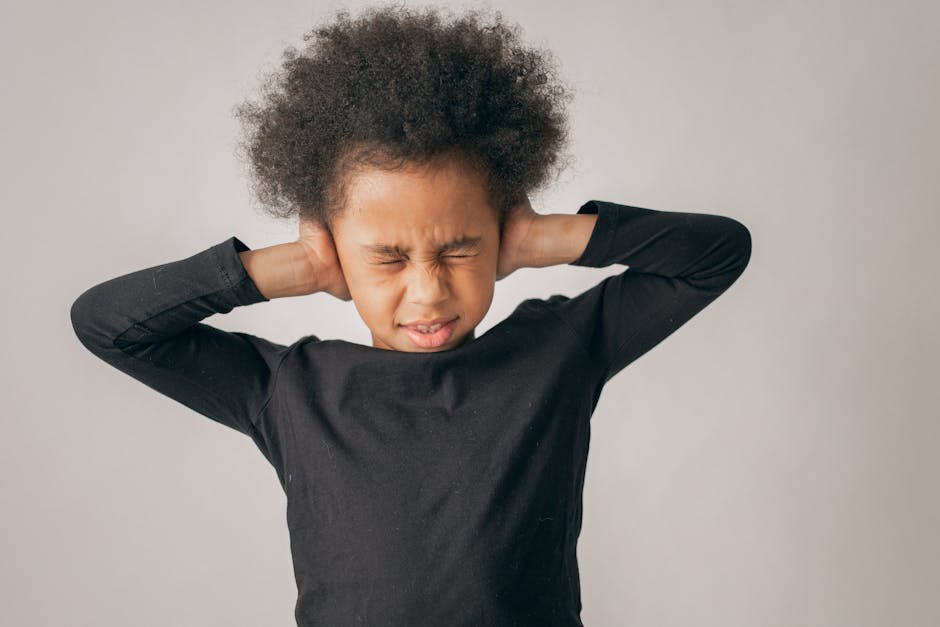 Depression, on the other hand, is a serious and debilitating mental illness that needs to be treated with professional help and therapy. These things are not all the same, and yet some people just can’t seem to grasp the difference. This can often feel very frustrating, especially when others disregard what you’re feeling as mere sadness and tell you not to think about it. Number eight people not understanding that mental illness is real. Many people still seem to think that depression is a choice and a mental illness. Isn’t real, But just because there are no physical manifestations to see doesn’t mean that the suffering you feel is not real. It’s, not just in your head. If you’re able to feel it, then it is very much real When others downplay its potency. It often leaves you feeling, as if you’re doing something wrong. As a result, you may even choose to remain silent about it. Instead, Number nine people think depression is the same for everybody Every individual’s. Experience of a mental disorder is different from Depression. Doesn’t look the same for everybody. Some people might stop eating and struggle with insomnia, while others might overeat and oversleep. Some people have high-functioning depression and may not even seem like they’re struggling at all for others, their depression might force them to lie in bed all day and do nothing. Nevertheless, all experiences of depression are valid, And number 10 learning to celebrate the little things. Finally, but perhaps most importantly, when you struggle with depression, even the littlest of victories deserve to be celebrated, Got outta bed today, smiled Managed a short conversation with someone Took the time to brush my hair, or take a bath. Give yourself a mental pat on the back. Those are all very, very important achievements for someone with depression. They might not mean much to other people, But to you struggling with mental illness on an everyday basis. They make up the good days that remind you why you need to keep fighting and why it’s so important to keep holding on It.’s important to remember not to allow others to dictate how you should feel Just because others are not feeling the same does not make it any less real. There’s no need to cover up or force yourself to change these feelings. The fact that you’re feeling it is reason enough to validate it If you are struggling with depression or any other mental illness. Please know that there is always hope and help and that someday things can be better. Seeking professional help can help you on the road to improvement, Leave a comment down below about your experience with depression. If you’d, like, Please, feel free to share any thoughts you have as well, If you found this video helpful, be sure to hit the like button and share it with those out there needing to hear this, Don’t forget to subscribe to Psych2Go and Hit the notification bell for more new videos And, as always thanks so much for watching We’ll see you next time..
Depression, on the other hand, is a serious and debilitating mental illness that needs to be treated with professional help and therapy. These things are not all the same, and yet some people just can’t seem to grasp the difference. This can often feel very frustrating, especially when others disregard what you’re feeling as mere sadness and tell you not to think about it. Number eight people not understanding that mental illness is real. Many people still seem to think that depression is a choice and a mental illness. Isn’t real, But just because there are no physical manifestations to see doesn’t mean that the suffering you feel is not real. It’s, not just in your head. If you’re able to feel it, then it is very much real When others downplay its potency. It often leaves you feeling, as if you’re doing something wrong. As a result, you may even choose to remain silent about it. Instead, Number nine people think depression is the same for everybody Every individual’s. Experience of a mental disorder is different from Depression. Doesn’t look the same for everybody. Some people might stop eating and struggle with insomnia, while others might overeat and oversleep. Some people have high-functioning depression and may not even seem like they’re struggling at all for others, their depression might force them to lie in bed all day and do nothing. Nevertheless, all experiences of depression are valid, And number 10 learning to celebrate the little things. Finally, but perhaps most importantly, when you struggle with depression, even the littlest of victories deserve to be celebrated, Got outta bed today, smiled Managed a short conversation with someone Took the time to brush my hair, or take a bath. Give yourself a mental pat on the back. Those are all very, very important achievements for someone with depression. They might not mean much to other people, But to you struggling with mental illness on an everyday basis. They make up the good days that remind you why you need to keep fighting and why it’s so important to keep holding on It.’s important to remember not to allow others to dictate how you should feel Just because others are not feeling the same does not make it any less real. There’s no need to cover up or force yourself to change these feelings. The fact that you’re feeling it is reason enough to validate it If you are struggling with depression or any other mental illness. Please know that there is always hope and help and that someday things can be better. Seeking professional help can help you on the road to improvement, Leave a comment down below about your experience with depression. If you’d, like, Please, feel free to share any thoughts you have as well, If you found this video helpful, be sure to hit the like button and share it with those out there needing to hear this, Don’t forget to subscribe to Psych2Go and Hit the notification bell for more new videos And, as always thanks so much for watching We’ll see you next time..

































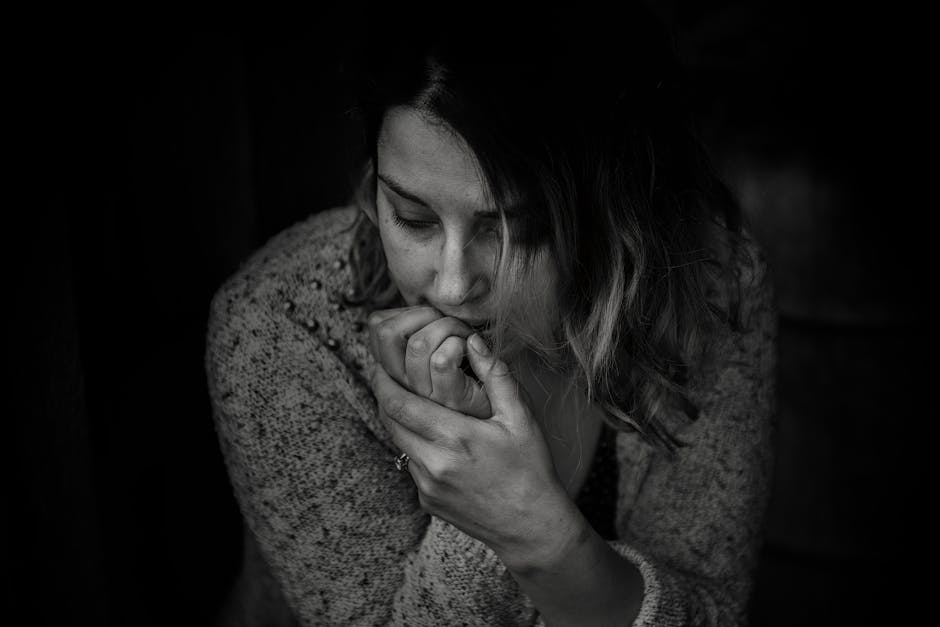 By practicing this suggestion over time you
will get better at it. Often anxiety sufferers can be helped by learning
how to be gracefully assertive in their relations with others. By learning polite assertiveness, you can
decrease your anxiety across several situations. We hope that you have enjoyed this video. To get more help with your anxiety, and obtain instant access to the 5 steps to
recovery from panic attacks and agoraphobia, just visit our website and provide your email
address. All of our information is free. Please visit our website at
By practicing this suggestion over time you
will get better at it. Often anxiety sufferers can be helped by learning
how to be gracefully assertive in their relations with others. By learning polite assertiveness, you can
decrease your anxiety across several situations. We hope that you have enjoyed this video. To get more help with your anxiety, and obtain instant access to the 5 steps to
recovery from panic attacks and agoraphobia, just visit our website and provide your email
address. All of our information is free. Please visit our website at 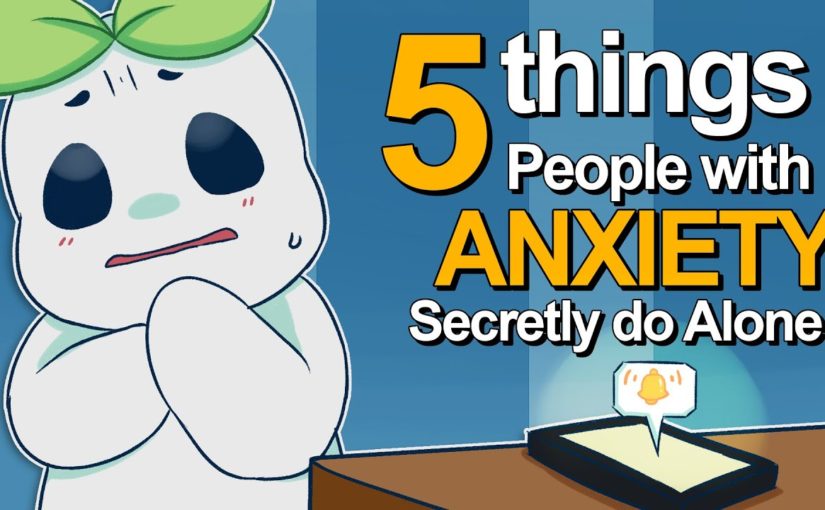

 When it comes to friends, quality is greater than quantity, Not everyone.’s idea of fun includes hanging out with a huge group of people or going to a party.It can be intimidating to be around a lot of people.You don’t know, And you’d – much rather prefer to spend time with a few close friends.The beauty of life is that no two experiences are the same, So there’s a friend out there for everyone, Even if you may be socially anxious.Five, it’s, not all in your head. Social anxiety can manifest as physical sensations for a lot of people.These symptoms are similar to feeling embarrassed, sweaty, hands, blushing hyperventilating, but can feel more intense and last longer.Facing social situations can potentially lead to panic attacks for some people, while others feel physically ill or faint.These physical symptoms may be scary, but they rarely are threatening to one’s immediate health Number.Six, you feel, like everyone is judging you When you’re socially anxious it can feel like you’re under a magnifying glass all the time.You feel overly conscious about yourself and project those worries onto other people about their perceptions of you, but just because you’re monitoring every detail about yourself, doesn’t mean everyone else is too In reality.People aren’t as focused on you, as you think, and they likely have their worries too And number seven.You are your harshest judge.When you’re socially anxious, you might find yourself comparing how you think act, or look to others.This self-criticism can seriously hurt your mental and emotional health and it’s important to treat yourself more kindly While it might feel like others, make connections more easily or have it so. Well, it’s important to remember that everyone is going through their things and they have worries and concerns.Just like you do.When it comes to social anxiety, it can be hard to interact with people or make friends when you’re overly worried.The truth is, though, there is no normal when it comes to being social.Everyone has their way of socializing with others, And you’ll find someone who you connect with on the same level.There’s nothing wrong with leaving early or spending another night at home with your dog.We hope you enjoyed this and found some comfort.What have your experiences been with social anxiety? Leave a comment down below to share your thoughts.If you enjoyed our video, please give it a like and subscribe to our channel for more content like this.Thanks for watching – and we’ll see you at the next one.
When it comes to friends, quality is greater than quantity, Not everyone.’s idea of fun includes hanging out with a huge group of people or going to a party.It can be intimidating to be around a lot of people.You don’t know, And you’d – much rather prefer to spend time with a few close friends.The beauty of life is that no two experiences are the same, So there’s a friend out there for everyone, Even if you may be socially anxious.Five, it’s, not all in your head. Social anxiety can manifest as physical sensations for a lot of people.These symptoms are similar to feeling embarrassed, sweaty, hands, blushing hyperventilating, but can feel more intense and last longer.Facing social situations can potentially lead to panic attacks for some people, while others feel physically ill or faint.These physical symptoms may be scary, but they rarely are threatening to one’s immediate health Number.Six, you feel, like everyone is judging you When you’re socially anxious it can feel like you’re under a magnifying glass all the time.You feel overly conscious about yourself and project those worries onto other people about their perceptions of you, but just because you’re monitoring every detail about yourself, doesn’t mean everyone else is too In reality.People aren’t as focused on you, as you think, and they likely have their worries too And number seven.You are your harshest judge.When you’re socially anxious, you might find yourself comparing how you think act, or look to others.This self-criticism can seriously hurt your mental and emotional health and it’s important to treat yourself more kindly While it might feel like others, make connections more easily or have it so. Well, it’s important to remember that everyone is going through their things and they have worries and concerns.Just like you do.When it comes to social anxiety, it can be hard to interact with people or make friends when you’re overly worried.The truth is, though, there is no normal when it comes to being social.Everyone has their way of socializing with others, And you’ll find someone who you connect with on the same level.There’s nothing wrong with leaving early or spending another night at home with your dog.We hope you enjoyed this and found some comfort.What have your experiences been with social anxiety? Leave a comment down below to share your thoughts.If you enjoyed our video, please give it a like and subscribe to our channel for more content like this.Thanks for watching – and we’ll see you at the next one.
 Having goals will help you figure out where you want to go and guide you on how to get there; Number five make something Art therapy can be a way for you to illustrate what you’re feeling without needing to find the words for it Number six therapy With the right guidance and support.You can slowly overcome your social anxiety,
Having goals will help you figure out where you want to go and guide you on how to get there; Number five make something Art therapy can be a way for you to illustrate what you’re feeling without needing to find the words for it Number six therapy With the right guidance and support.You can slowly overcome your social anxiety,